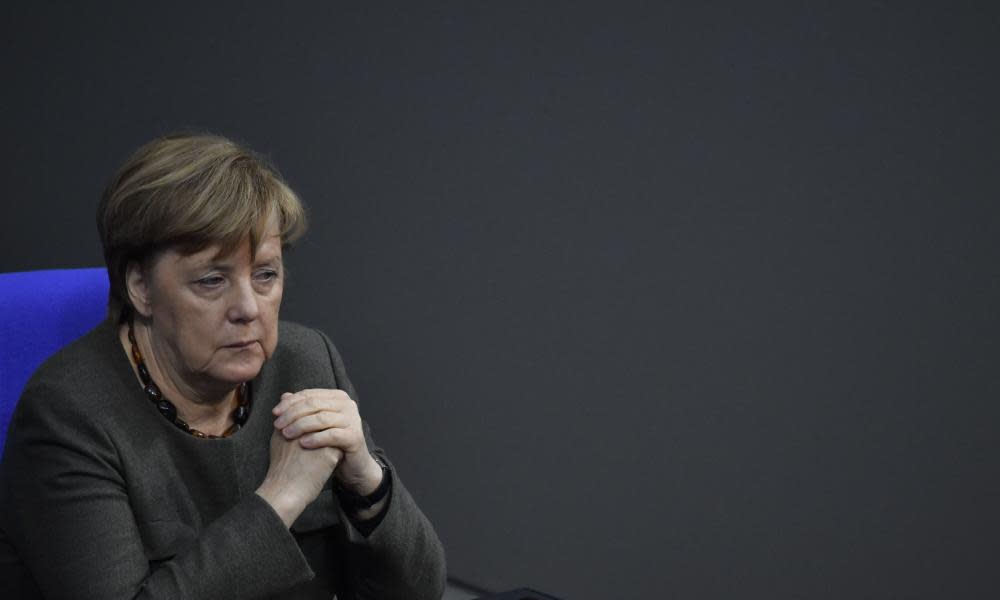The Guardian view on Germany’s social democrats: no easy options

Germany has now been without a government for more than three months, and it could be at least the end of February before Angela Merkel can start her fourth term as chancellor – if she ever can. It is surely significant that two successive elections have each been followed by record-breaking difficulties in forming a government. It is a reminder that the once seemingly commanding large parties are dwindling in Germany, just as they have dwindled elsewhere in Europe. German party politics is fragmenting: there are now six different party groupings in the newly elected Bundestag or parliament.
Following the weekend vote by the social democrats (SPD) to begin detailed coalition talks with Angela Merkel’s centre-right CDU-CSU bloc, normal political business may now reassert itself to some degree. Nevertheless, there are still major hurdles to jump, of which the largest will be a referendum among SPD members on the deal, and success is not guaranteed. Even without serious hitches, it may be fully six months before a new government is finally formed in Europe’s richest and most important country. This may not do much to shake Germany’s economic credibility. But it is putting unfamiliar pressures on Germany’s party and governmental systems. The fact that Mrs Merkel has long been Europe’s dominant leader in spite of never having secured an overall majority should not disguise the importance of these new signs of weakness.
Nowhere is this weakness more obvious than in the SPD. Germany’s oldest party scored its worst election result in modern times in September, claiming only 20.5% of the vote. At the time, the party leader Martin Schulz spoke for many activists when he said the SPD needed to regroup and rethink in opposition, blaming the result on the SPD’s role as junior partner in Mrs Merkel’s 2013-17 grand coalition. But after the failure of her attempt in the autumn to form a three-way coalition with the liberal FDP and the environmentalist Greens, Mrs Merkel came knocking on the SPD’s door once more and talks resumed. Sunday’s party conference in Bonn forced social democrats to face a difficult dilemma: remain in Mrs Merkel’s shadow in another “Gro-Ko” grand coalition – or spurn a deal and risk fresh elections.
The result at the weekend showed the extent of the divide. When the vote was called, a show of hands was too close to call. On a count, Mr Schulz prevailed by 362 to 279 – just 56% support. Everything about the conference in Bonn was uneasy. Mr Schulz did his best to promote his framework deal with Mrs Merkel as delivering on SPD domestic priorities and as the embodiment of the SPD’s commitment to Europe. But the party’s youth section opposed him, while important regions like North Rhine Westphalia and Hessen demanded more from Mrs Merkel. As a result, Mr Schulz had to pitch his appeal as a call to enter negotiations, not necessarily to enter government, and he had to promise changes in the framework deal on more liberal immigration and tighter labour rules that Mrs Merkel may not concede.
The long gestation of Germany’s next government now moves on to detailed talks, to be followed by the referendum of the SPD’s 440,000 members on the outcome. There are many possibilities about how all this may end, one of which might involve another roll of the dice between Mrs Merkel and the Greens to form a minority government with tacit SPD support but not participation. However, the dilemmas facing the SPD were not resolved at the weekend. The deal that Mr Shultz has to negotiate will not only shape the future of his party, but of Germany too.

 Yahoo News
Yahoo News 
